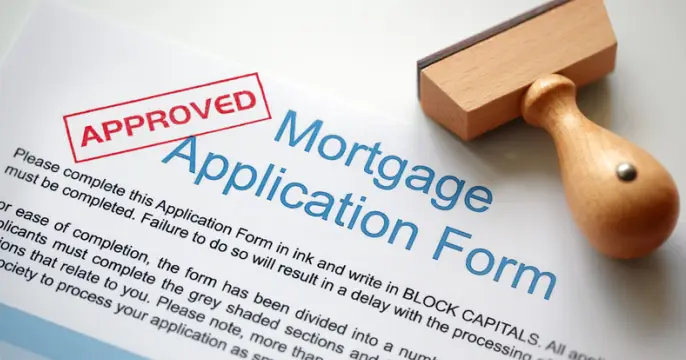Everyone wants to live in their dream house. However, not everyone can afford the costs associated with buying a house, or having one built from the ground up. If you are on a quest to purchase your dream home, what can you do to raise the money in record time? That’s what we will find more about here.
How Much Does a New Home Cost?
Before dishing out tips on how you can raise money for your dream house in record time, let us first take a look at how much you actually need to buy one.
According to Business Insider, the cost of buying an average home in the US varies wildly. Here’s a quick look at how much the average home prices and monthly mortgage payments are:
- Chicago
Average home price = $187,100
Monthly mortgage payment = $755.74
- Phoenix
Average home price = $192,700
Monthly mortgage payment = $765.61
- Minneapolis
Average home price = $197,100
Monthly mortgage payment = $788.67
- Philadelphia
Average home price = $214,300
Monthly mortgage payment = $859.52
- Baltimore
Average home price = $241,700
Monthly mortgage payment = $960.29
- Sacramento
Average home price = $250,360
Monthly mortgage payment = $999.42
- Miami
Average home price = $254,900
Monthly mortgage payment = $1,024.77
- Portland
Average home price = $267,500
Monthly mortgage payment = $1,070.36
- Denver
Average home price = $279,300
Monthly mortgage payment = $1,122.86
- Seattle
Average home price = $344,400
Monthly mortgage payment = $1,379.70
- Washington, D.C.
Average home price = $368,000
Monthly mortgage payment = $1,465.56
- Boston
Average home price = $371,300
Monthly mortgage payment = $1,485.71
- New York City
Average home price = $386,300
Monthly mortgage payment = $1,543.90
- Los Angeles
Average home price = $423,900
Monthly mortgage payment = $1,682.69
- San Diego
Average home price = $476,790
Monthly mortgage payment = $1,903.31
- San Francisco
Average home price = $628,410
Monthly mortgage payment = $2,695.23
According to Census.gov, the median price of buying a home in the US for 2010 is $221,800 while the average price is $272,900.
Ways to Quickly Raise Money for Your Dream Home
If you want to buy a house in San Francisco where the average home price is $628,410, you’d have to earn at least $115,510. If your salary is equally average, how can you afford to buy a new home?
To get you started, here are a few ways that you can raise money for your dream house in record time, and what else you need to know before purchasing a home:
Strengthen your credit score before buying a house
According to real estate experts, if your credit score is below 660 or 680, you are going to have to pay sizable fees or a higher down payment when buying a house. If you’re still in the process of house hunting, you still have time to strengthen your credit score.
For credit scores at the 580 range, you can be a qualified borrower but in order to get a reasonable down payment and lower interest rates, the 640 to 660 score applies. Those who have glowing credit scores – anywhere from 700 to 720 or 750 will give you the best rates in the market.
What you can do to improve your credit rating is to review your credit report. Make sure that there are no errors and you are not still being penalized for old debts, much more for ones that you already paid or settled. One year before you apply for financing, stop applying for new credit so that you can give your credit score a boost.
Learn about the realistic debt-to-income ratio
Next, figure out what you can actually afford. How much income is coming into the household and how much are you paying for debts and the regular monthly expenses? From this, you can figure out how much you can afford to pay for down payment and the monthly mortgage.
It also helps if you will learn about the realistic debt-to-income ratio. A good rule of thumb to follow is that for conventional loans, your home expenses should not exceed 28% of your gross monthly income. First time home buyers can use online calculators to have an idea about how much you need to buy a house with a specific amount, and how much you need to set aside for the monthly mortgage payments.
Save money for down payment and closing costs
Perhaps the most important thing that you need to save up for when buying a house is the down payment. Depending on your credit score and the type of financing that you will get for the house, you’ll require an average of 3% to 20% of the home’s price.
Of course, the bigger your down payment is, the lower your monthly mortgage – so it pays to really save up for it. The only exception is Veterans Affairs loans, which require no down payments.
Aside from the down payment, you should also save up for closing costs and loan fees. Based on where you live, the average amount for closing costs range from $2,300 to $4,000. If it’s a buyer’s market, you can negotiate to have the seller pay a portion of the closing costs.
Establish a healthy savings account
If you think that a lender will only look at your financial ability to pay off the down payment and closing costs when you’re applying for a home loan, think again. They need to know that you will not be living on a paycheck-to-paycheck basis once you start paying monthly mortgage fees, so it pays to bulk up your savings.
You can also use the money to cover maintenance expenses and repair costs which are unavoidable once you purchase a new home. On average, you will need 2.5% to 3% of your home’s value annually to repair, upkeep and maintain it – so aim to save accordingly per month.
Earn and save more, spend less
Again, it will take quite some time for you to prepare for the actual buying of the house – so save as much money as you can. Consider taking on additional projects at work, part-time jobs, giving up luxuries in the meantime and spending a lot, lot less than what you’re used to.
Think of ways to cut back on your luxury expenses or even household maintenance budget and put the saved money towards your house buying funds. Whatever extra amount you earn, add it to your savings account or put it directly towards your fund for the house down payment.
Get pre-approved for a mortgage
As compared to the pre-approval process a few years ago, the steps are a lot more extensive today. It is important for you to prepare documentation around your income and assets.
If you yourself do not know how much you can afford, how can you expect your loan to be approved? Another thing to add to this is that you should make sure to get a house that you really like.
Buying and selling a house to relocate can be a quite expensive process – so make sure that you like the house enough to stay in it for a few years before making the decision to buy.
Consider using your equity for a down payment
Tapping into your primary home is the best way to raise money for your dream house in record time. For those who are planning to retire in a vacation home in the next few years, you can minimize your payments by taking advantage of an interest-only second mortgage.
Then, once your primary home is sold, you can exclude a significant amount in capital gains for taxes. You can use the proceeds to pay off or reduce the mortgage on the second home.
Be open to downgrading, then simply improve the house later on
If your mind is really set on buying a two-story house, you still should not discount the possibility of buying a cheaper bungalow. You can practically turn anything into your dream home through improvements, renovations and remodelling. You can work on all of these later on – but you need to purchase an actual house first.
Never take on a financial commitment that is bigger than what you can actually afford, otherwise you are risking foreclosure of the house even before you actually get to purchase it.
Additional tips on how to raise money for your dream house
If it’s a buyer’s market in the real estate industry, know how to take full advantage of it. For instance, you can negotiate to have the seller pay a portion of the closing costs. Bid at least 15% below the asking price or ask them to make the repairs first.
Do a thorough research of the neighborhood if you’re planning to move to a new place so that you would have an idea about the cost of living, the amenities available, the ease of accessibility of everything, and whether the selling price of the house is on-point.
By doing your research, you can know everything there is to learn before buying a house – and raise money in record time so that you can finally get that dream home of yours.








